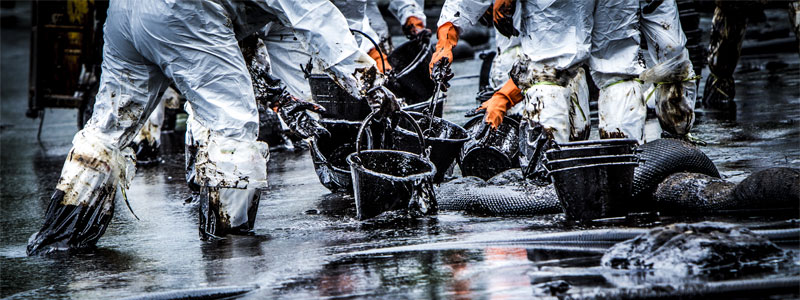Workers involved in oil spill clean up more likely to experience asthma symptoms, new research shows

Two DLH researchers are co-authors of a new article which found that workers involved in cleaning up the 2010 Deepwater Horizon oil spill in the Gulf of Mexico were 60% more likely than those who did not work on the cleanup to be diagnosed with asthma or experience asthma symptoms in the years following the spill.
The article, titled “Associations between airborne crude oil chemicals and symptom-based asthma” was co-authored by DLH Lead Epidemiologist W. Braxton Jackson and Senior Data Manager Kate Christenbury.
The National Institute of Environmental Health Sciences (NIEHS) recently highlighted this work, which emanates from its ongoing Gulf Long-term Follow-up (GuLF) STUDY. GuLF is the largest study to look at the health of workers who responded to the 2010 Deepwater Horizon oil spill in the Gulf of Mexico, which remains the nation’s largest oil spill.
For this article, the researchers analyzed data from 19,018 oil spill response and cleanup workers and another 5,585 people who had completed required safety training but did not work on cleanup. While none of the participants had been diagnosed with asthma before the spill, the researchers report that 5% of the cleanup workers reported asthma and asthma symptoms in its aftermath. Only 3% of non-workers reported asthma or asthma symptoms.
Nearly 33,000 participants are enrolled in the GuLF STUDY. More information can be found on the GuLF STUDY website.
The full article is available via PubMed.






Leave a Reply
Want to join the discussion?Feel free to contribute!